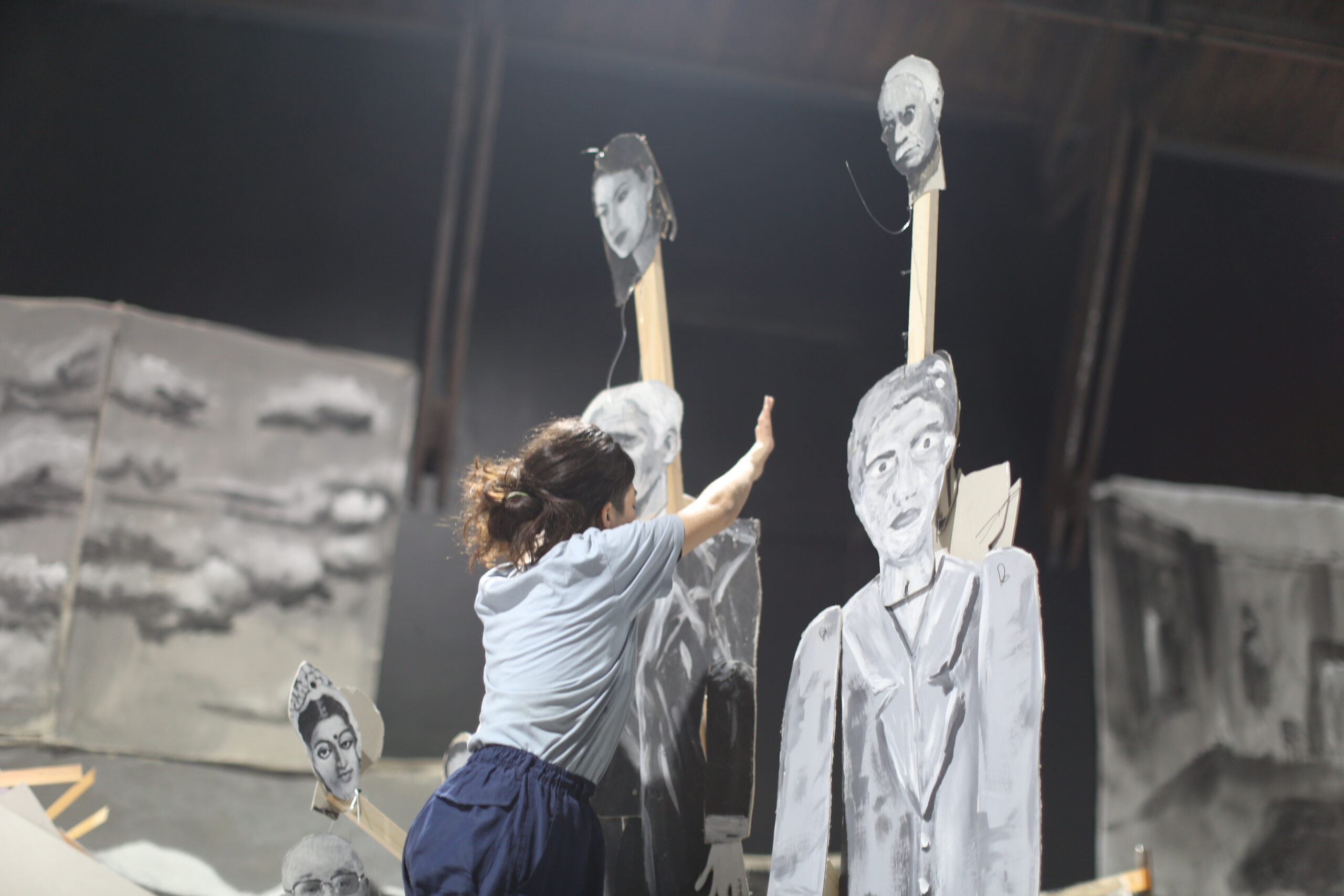November 22, 2022
The directors of the award-winning stop motion The Wolf House have returned with a promising artistic project that will allow the public to know the details of their next film, Los Hiperbóreos.
Until January 22, the Gallery of Visual Arts of Matucana 100 will become a film set by León and Cociña, who work on their new feature film that will address the political history of Chile from a critical and caricature look at the same time.
The directors have become leaders of the Chilean audiovisual industry. The Wolf House won 20 nominations and 8 awards at festivals around the world. The most important awards were the Caligari Prize of the 68th Berlinale Forum and the Jury award at the Annecy Animation Film Festival in 2018, consecrated as one of the most important in the animation industry.
Produced by Catalina Vergara (Globo Rojo Films) and starring Antonia Giesen, the exhibition continues the journey of The Wolf House, which took place in more than 15 theatres and screening spaces, including the 68th Berlinale.
In addition, the team is also formed, like The Wolf House, by co-writer Alejandra Moffat, Natalia Geisse in the co-art direction and Claudio Vargas in sound design.
The initiative of Los Hiperbóreos is born from experience and various ways of turning creative processes into works, where their own workshop will be an open and large-scale installation after a tragic incident: the theft of celluloid film and other items from the artists’ workshop, which motivated them to remake their lost film.
 | “We want this project to be alive and in dynamic spaces. We try to think of the art space as a workshop, a house under construction, a Persian market, a garbage dump, a school and an amusement park. Los Hiperbóreos is the biggest experiment we’ve ever done in this line of work” Joaquín Cociña |
 | “During our exhibition, we will transform the Matucana 100 Visual Arts shed into a large film set of a feature film of the same name. The exhibition will be in permanent change, as we will finish painting and build the sets in the same place, we will shoot the movie and we will modify the montage as we advance the creative process in the place” Cristóbal León |
Cristóbal León: Since our first work Lucia (2007) we have had the idea of making projects of the process of making a film. This idea has lasted through all our career and we have always wanted to make it, in The wolf house we radicalized it and we made a film in museums and galleries. People were going to see two guys cheering in a very chaotic space and workshop of artists.
Joaquín Cociña: The process is just as important to us as the final outcome. I find it economically sad that all the beauty of the production process of a film is not transparent in the final results, with Cristóbal we enjoy the films where you see what has been done.

“When you get to watch the making of movies with special effects or old movies, they are always amazing. It always happened to us as visual artists that we went to the workshops of our artist friends and they were always more interesting than the exhibitions. We assumed this in our work and we are trying to make exhibitions that are workshops and film sets“
Cristóbal León
Joaquín Cociña: Previously on a local manner, many people became loyal to The Wolf House, many said they saw the exhibition, or asked when the film was going to be finished. These actions effectively produce an effect of affection to a product that is not advertising, but does establish loving relationships with people who see the process of the film and that is what we expect with Los hiperbóreos.
Cristóbal León:When we arrived at the premiere of The Wolf House there were already many followers of the film. We had many doubts about whether to show the process but in the end it was very positive, it was only gaining strength during the five years we were showing what we already had encouraged.

“We could never finish the film, which we shot in 16mm black and white, because we got robbed in our workshop and they took the film tapes along with cameras, sacred objects and equipment. Instead of re-shooting Los Hiperbóreos, we have decided to produce a film that will unearth the process of creating this lost feature film and hopefully help us reveal the mystery of the theft”
Joaquín Cociña
Cristóbal León: : I think we are being aware that as artists we must think about our own ways of distribution and production. Being an artist does not only mean inserting oneself into a production machine, but it means thinking about the machinery and being creative with it.
Joaquín Cociña:The important part of the policy associated with local film productions has to do with designing production systems that make sense for local budgets and audience size, I think it’s important for us to get as much out of our budget as possible, but above all to understand that there are no standard production models, you can invent them, you don’t have to make films like they do in other countries.
Technical Info:
Artists: León & Cociña
Actress: Antonia Giesen
Production: Catalina Vergara
Art Co-Director: Natalia Geisse
Script: Joaquín Cociña, Cristóbal León & Alejandra Moffat
Cinematography: Natalia Medina
Fund Artists: Francisco Visceral Rivera
Storyboard: Francisco Visceral Rivera, Carolina Angulo
Art Assistant: Javiera Sandoval
Assistants: Octavio Ratarro Palma, Joaquín France, Pamela Simeone, José Luis Ramírez
Produced by Globo Rojo & Diluvio
Project financed by FONDART, Call 2021
With the support of Fundación Engel